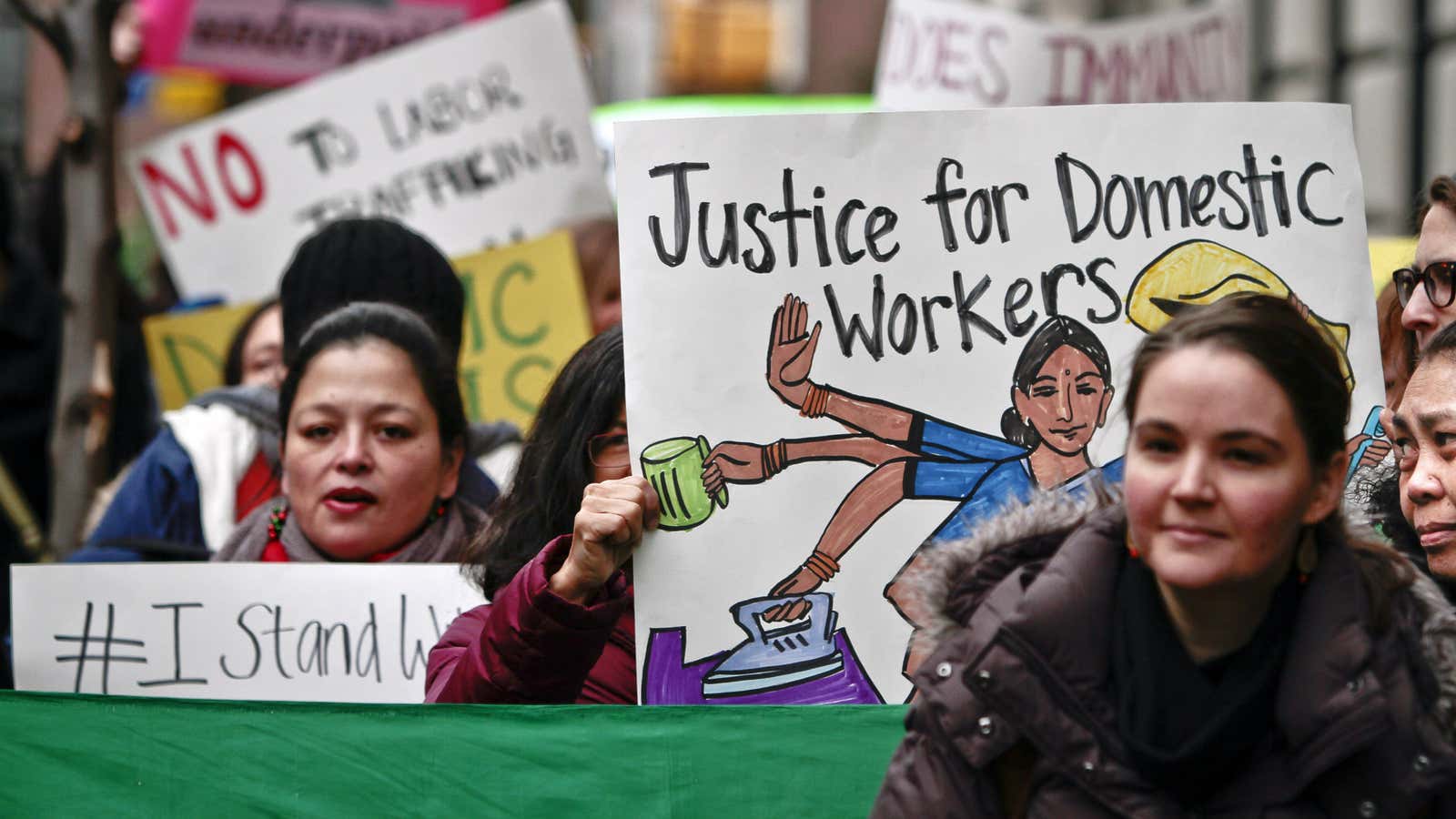Sangeeta Richard, the domestic helper from India at the center of the recent US-India diplomatic debacle, remains in the US on an immigration status given to victims of human trafficking, indicating that is the charge US authorities are investigating in the high-profile case.
“I can confirm that our client has been granted Continuing Presence status by the federal government,” David Beasley, a spokesman for Safe Horizon, a non-profit representing Richard, told Quartz in an e-mailed response to questions. Richard came to the US to work for Indian deputy counsel general Devyani Khobragade in New York. Khobragade is accused of paying her far less than pledged in documents to US immigration authorities, and according to Richard’s family, forcing her to work 17 hour days without time off and refusing to let her leave the US. Khobragade denies the accusations, and she and Indian officials say US law enforcement unnecessarily humiliated her when she was arrested.
As the US Department of Homeland Security explains(pdf), the status under which Richard remains in the US “provides temporary immigration relief to individuals who are identified by Federal, State, local, tribal or territorial law enforcement as victims of human trafficking.” The status is designed to allow victims to remain in the US temporarily “during the ongoing human trafficking investigation and prosecution,” the homeland security department says, and is granted in part because it may lead to identification of other cases and rescue of other victims. Continued presence status “should be made available as soon as law enforcement identifies a victim of human trafficking; the investigation does not have to be completed prior to requesting,” the department says.
In a statement last week, US attorney Preet Bharara, who is investigating the case, did not use the phrase human trafficking, but said that Khobragade was charged based on conduct that allegedly “shows she clearly tried to evade U.S. law designed to protect from exploitation the domestic employees of diplomats and consular officers.” He also seemed to indicate investigations into conduct by other diplomats could be forthcoming. “The Indian government itself has been aware of this legal issue, and that its diplomats and consular officers were at risk of violating the law,” he said.
The US has been tough in the past on diplomats and other foreign officials charged with human trafficking after they paid domestic helpers brought from home but did not follow US labor laws, resulting in hefty fines and, in some cases, deportation.
